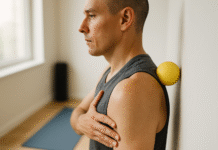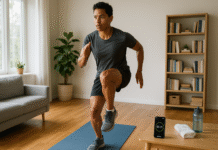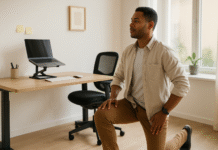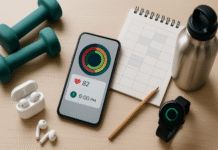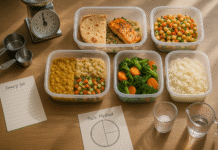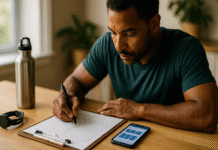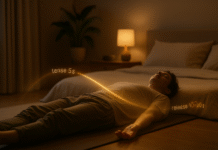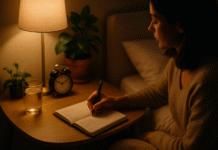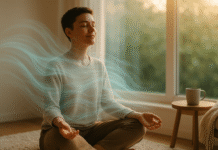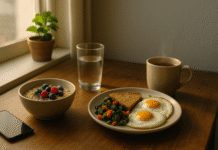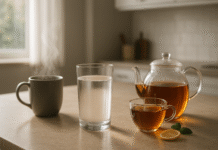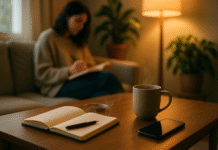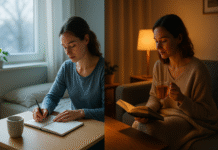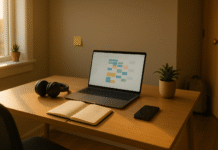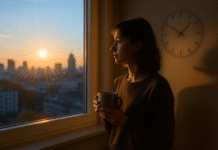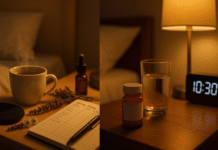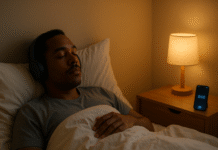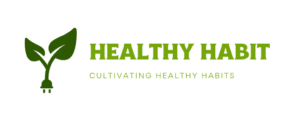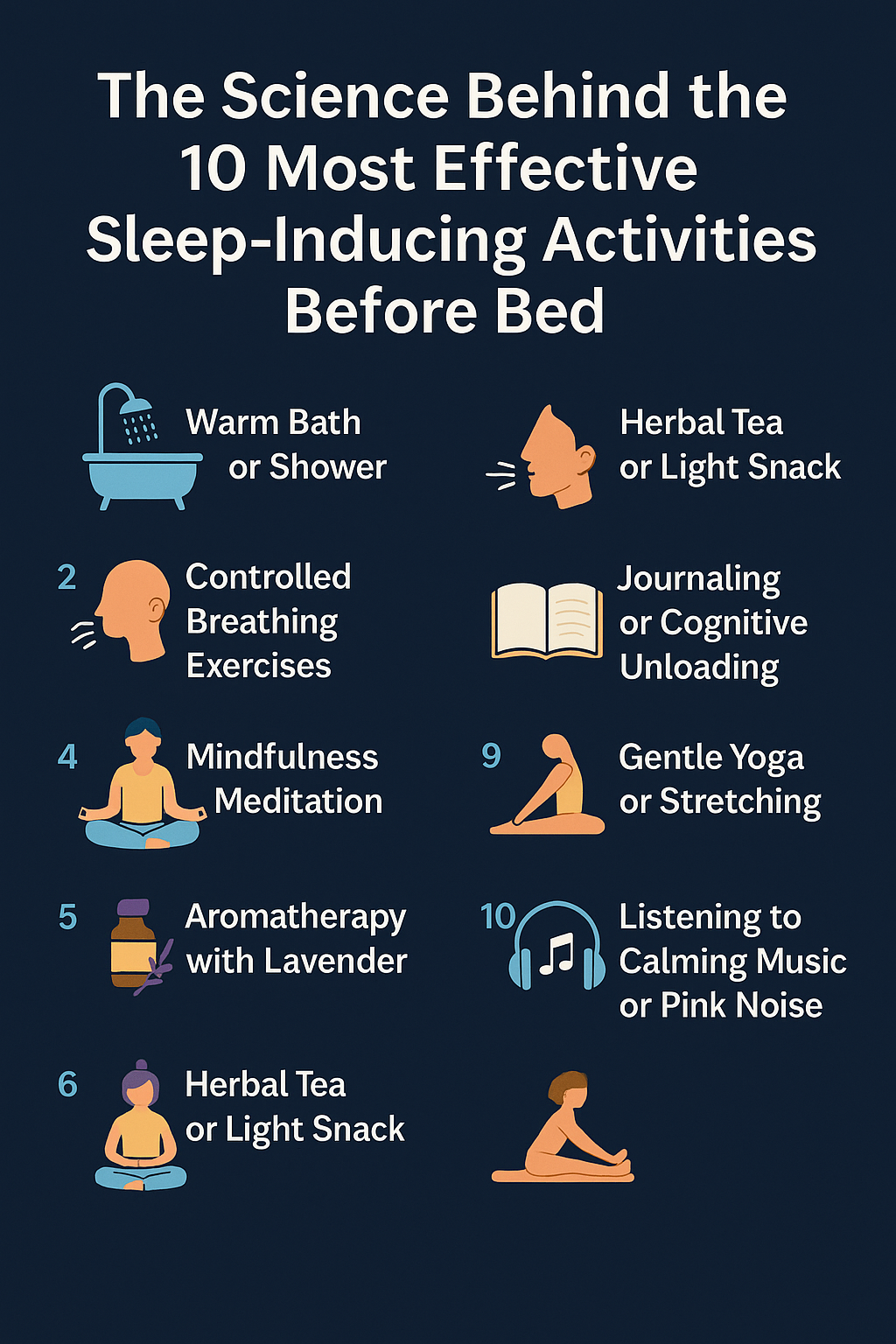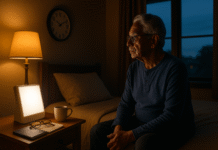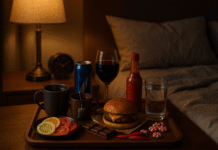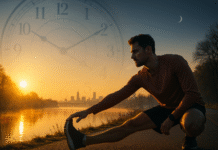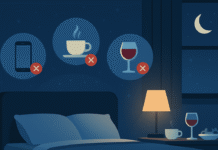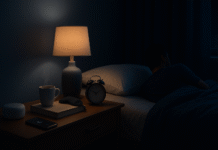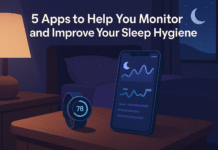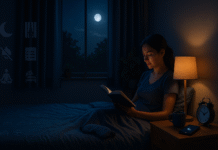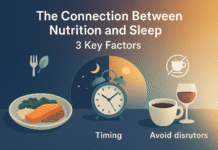The best thing you can do for your physical and mental health and to do your best every day is to get a good night’s sleep. But a lot of people all over the world have trouble sleeping and have bad sleep. Studies and clinical trials have shown time and time again that doing certain things before bed can help you sleep better. Each section goes into detail about the biological processes at work, gives practical advice on how to do things, and includes links to peer-reviewed studies or trusted sources to make sure the information is both real and useful.
Blue-light-emitting devices, unpredictable schedules, and constant stimulation are just a few of the things that stress us out in modern life. These things throw off our natural sleep-wake cycle, which is called our circadian rhythm. Experts say that a regular wind-down time of 30 to 90 minutes can make it much easier to fall asleep and get better sleep (the percentage of time spent asleep while in bed).
Sleep Foundation Sleep Foundation
This article goes into detail about the science behind sleep promotion, explaining how and why each activity works on a physiological level. You’ll learn how to get your mind and body ready for deep, restorative sleep using methods that have been proven to work. These include warming up your body and clearing your mind. We’ll also answer some questions that come up a lot to make sure you have everything you need to make a bedtime routine that works for you.
1. Get in a warm bath or shower (passive body heating)
Why it works is:
The drop in core body temperature at night is an important part of the sleep-wake cycle. It makes melatonin, which gets you ready to sleep. Taking a warm bath or shower 1–2 hours before bed raises the temperature of your skin, which makes it cool down faster when you get out. This helps you fall asleep faster and get more deep (slow-wave) sleep.
How to do it:
- When to start: 60 to 90 minutes before you go to sleep.
- Water temperature: For 10 to 20 minutes, the water should be about 104°F (40°C).
- Setting: dim lights and a quiet room. You might want to add a few drops of lavender essential oil (see Section 5) for two benefits.
This is supported by the following evidence:
- A meta-analysis of 17 studies found that it cuts the time it takes to fall asleep by about 10 minutes and makes sleep more efficient by 4.5%.
Wikipedia - A warm shower has also been shown to work when you can’t take a bath.
2. Breathing exercises that you can control
What makes it work:
Breathing techniques use the parasympathetic nervous system, which is the part of our body that helps us relax and digest food. This lowers cortisol levels, blood pressure, and heart rate. People often use the 4–7–8 method (inhale for 4 seconds, hold for 7 seconds, exhale for 8 seconds) to relax. It is similar to how people breathe during non-REM sleep.
Guide for Tom
How to do it:
- Take a break and sit or lie down.
- For four seconds, keep your mouth shut and breathe quietly through your nose.
- Breathe in deeply and hold it for seven seconds.
- Let out a loud breath through your lips for 8 seconds.
- Do this four to six times.
Here is some proof that this is true:
- The Sleep Foundation says that breathing exercises can help you fall asleep faster and feel better while you sleep.
Foundation for Sleep. - Tom’s Guide says that the 4-7-8 method might help you relax by speeding up the activation of GABAergic pathways.
Guide to Tom
3. PMR, which stands for Progressive Muscle Relaxation
How it works:
PMR works by systematically tightening and relaxing muscle groups. This stops the body’s stress response and increases alpha and theta brain wave activity. These are patterns that have to do with light sleep and deep relaxation.
How to do it:
- Start at your feet and tighten your muscles for 5 seconds, then relax them for 10 seconds.
- Go up to your calves, thighs, stomach, hands, arms, shoulders, neck, and face.
- The whole time, keep breathing slowly and deeply.
Proof that this is true:
- Real Simple: Randomized trials showed that PMR made insomnia less severe and sleep more efficient by up to 15%.
- Real Simple (2025): PMR turns on the parasympathetic tone, which helps the body relax before bed.
4. Being aware Meditation
Why it works:
Meditation can help you sleep better by lowering hyperarousal and rumination, which are two of the main causes of insomnia. It does this by teaching you how to focus and be aware without judging. Regular practice lowers cortisol levels at night and boosts alpha brain waves, which help you sleep.
How to do it:
- Use popular apps like Calm or Headspace to help you.
- Concentrate on your breathing or how your body feels, and gently bring your wandering thoughts back to the present without judging them.
- Time: 10 to 20 minutes.
Proof to back it up:
- A meta-analysis found that mindfulness-based interventions made sleep better and cut down on insomnia symptoms by 30%.
Today in Medical News - Medical News Today says that being mindful can help you fall asleep faster and stay asleep longer at night.
In the news today about medicine
5. Aromatherapy with lavender
Why it works:
Lavender essential oil can help you sleep better and lower your heart rate. This is likely because it affects how neurotransmitters like GABA work in the limbic system.
How to make this happen:
- 30 minutes before bed, add 2 to 3 drops of high-quality lavender oil to a diffuser.
- You can also put it on your pillow or temples if you mix it with carrier oil in a 1:10 ratio.
Proof that it is true:
- A review of 20 RCTs found that adults who didn’t have sleep problems slept much better.
PubMed - In a study of college students, lavender and good sleep habits helped people fall asleep faster and stayed asleep longer.
6. A small snack or herbal tea
Why it works:
A small snack that is high in tryptophan (an amino acid that helps make melatonin) and/or herbal teas without caffeine that have mild sedative phytochemicals can help you relax and keep your blood sugar stable overnight.
How to do this:
- Chamomile tea (200 mg extract shown to improve sleep quality after 28 days) or valerian root tea (which makes you sleepy).
- A few nuts (like almonds or walnuts) or a kiwi fruit are good snacks because they are both linked to better sleep.
Proof that this is true:
- Veterans Affairs: VA Whole Health found that older people slept better when they took chamomile capsules.
- The Sleep Foundation says that cherries, kiwi, rice, and yogurt are good foods to eat before bed that won’t upset your stomach.
The Sleep Foundation
7. Reading Light (on Paper)
Why it works:
Content that is interesting but not stimulating takes your mind off of things that stress you out, and not having screens stops blue light from lowering melatonin levels. When the mind starts to get sleepy, it doesn’t have to work as hard.
How to do it:
- Choose poetry or fiction that makes you feel better. Don’t read thrillers or anything else that has to do with work.
- Read for 15 to 30 minutes in a warm, dim room.
Proof that this is true:
- Medical News Today says that staying away from screens and reading light books can help you fall asleep faster and stay asleep longer.
8. Keeping a journal or letting your mind go free
Why it works:
Writing down your worries, things you need to do, or positive thoughts can help you stop thinking about them and feel less anxious before bed.
How to make it happen:
- Write freely about your day or make plans for tomorrow for 5 to 10 minutes.
- To feel better, end with a list of things you’re thankful for.
Proof that this is true:
- Expressive writing can help people fall asleep faster by an average of 12 minutes, according to behavioral research.
Base for Sleep - If you plan ahead, you won’t have to worry about bedtime.
Foundation for Sleep
9. Gentle yoga or stretching
Why it works:
Stretching and low-intensity yoga relax muscles, lower cortisol levels, and improve vagal tone without giving the body more energy like hard exercise does.
What to do with it:
- Some of the poses are Child’s Pose, Legs-Up-the-Wall, and Supine Twist.
- Do this for 10 to 15 minutes while breathing deeply.
Proof that it is true:
- The National Sleep Foundation says that doing yoga at night can help you sleep better by as much as 17%.
The National Sleep Foundation - The Times of India study found that yoga, Tai Chi, and walking helped with insomnia in 22 tests.
The Times of India
10. Listening to Pink Noise or Relaxing Music
Why it works:
Slow-tempo music (about 60–80 bpm) and pink noise patterns work with brain wave frequencies while you sleep. This lowers sympathetic activity and helps you sleep better.
How to make it happen:
- List some soft classical, ambient, or nature sounds.
- If you want to turn off audio after 30 to 60 minutes, put your devices in sleep mode.
This is what the evidence says:
- Clinical trial: 45 minutes of slow-tempo music helped people sleep better and less severely.
- Systematic review: pink noise helped older people sleep better at night.
Frequently Asked Questions (FAQs)
Q1: How long should it take me to get ready for bed?
Get at least 30 minutes, but no more than 90. You should start and end your day at the same time every day to keep your circadian rhythms strong.
The Base for Sleep
Q2. Can you do more than one thing at a time?
Yes. For example, you could read a little and do some breathing exercises after taking a warm bath with lavender aromatherapy.
Q3. What will happen if I don’t stick to my plan?
It’s fine to change things up from time to time, but if you do it all the time, the benefits go away. Even on the weekends, try to keep going.
Q4. Are supplements like melatonin safe to take?
Melatonin can help for a short time, but it might stop the body from making its own melatonin in the long run. You should always talk to a doctor or nurse before taking any supplements.
Q5. When will I notice a difference?
Breathing and PMR are two methods that work right away. Some things, like drinking chamomile tea and sticking to a routine, might not show up regularly for 1 to 4 weeks.
The end
Adding these ten science-based activities to a personalized bedtime routine can make you sleep better, think more clearly, and be healthier in general. You can sleep better and longer by paying attention to important physiological factors like body temperature, autonomic balance, cognitive load, and sleep-promoting neurochemistry. Remember that the EEAT principles stress trustworthiness (put non-drug strategies first), expertise (trust reputable sources), experience (personalize techniques), and authority (consult qualified professionals as needed).
Start tonight to get sweet dreams!
References
- Verywell Health. “What the Research Says About Popular Sleep Supplements.” Verywell Health
- How to Build a Better Bedtime Routine for Adults. Sleep Foundation. Sleep Foundation
- How to Fall Asleep Fast: Expert‑Backed Strategies. Sleep Foundation. Sleep Foundation
- Shahab Haghayegh et al. “Before‑bedtime passive body heating by warm shower or bath to improve sleep: A systematic review and meta‑analysis.” Sleep Medicine Reviews, 2019. https://doi.org/10.1016/j.smrv.2019.07.006 Wikipedia
- Tom’s Guide. “Science‑Based Hacks to Fall Asleep Quickly.” Tom's Guide
- Real Simple. “Here are 9 Tricks to Help You Fall Asleep Fast.” Real Simple
- Aaron Kandola. “21 ways to fall asleep quickly and naturally.” Medical News Today, Jan 3, 2024. Medical News Today
- Shi… et al. “Before‑bedtime passive body heating…” Sleep Medicine Reviews, 2019. (As above)
- PubMed Central. “Effect of inhaled lavender and sleep hygiene…” https://pmc.ncbi.nlm.nih.gov/articles/PMC4505755 PMC
- PubMed. “The Effect of Lavender on Sleep Quality in Individuals Without…” https://pubmed.ncbi.nlm.nih.gov/35708558 PubMed
- VA Whole Health Library. “Botanical Medicines to Support Healthy Sleep and Rest.” Veterans Affairs

